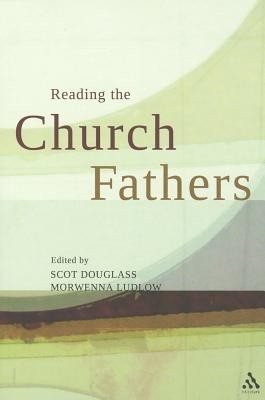
- We will send in 10–14 business days.
- Publisher: T&T Clark
- ISBN-10: 0567607623
- ISBN-13: 9780567607621
- Format: 15.5 x 23.1 x 1.8 cm, softcover
- Language: English
- SAVE -10% with code: EXTRA
Reading the Church Fathers (e-book) (used book) | bookbook.eu
Reviews
Description
Reading the corpus of texts written by the Fathers of the Church has always been a core area in Christian theology. However, scholars and academics are by no means united in the question how these important but difficult authors should be read and interpreted. Many of them are divided by implicit (but often unquestioned) assumptions about the best way to approach the texts or by underlying hermeneutical questions about the norms, limits and opportunities of reading Ancient Christian writers.
This book will raise profound hermeneutical questions surrounding the reading of the Fathers with greater clarity than it has been done before. The contributors to this volume are theologians and historians who have used contemporary post-modern approaches to illuminate the Ancien corpus of texts. The chapters discuss issues such as What makes a 'good' reading of a church Father? What constitutes a 'responsible' reading? Is the reading of the Fathers limited to a specialist audience? What can modern thinkers contribute to our reading of the Fathers?EXTRA 10 % discount with code: EXTRA
The promotion ends in 20d.03:26:21
The discount code is valid when purchasing from 10 €. Discounts do not stack.
- Publisher: T&T Clark
- ISBN-10: 0567607623
- ISBN-13: 9780567607621
- Format: 15.5 x 23.1 x 1.8 cm, softcover
- Language: English English
Reading the corpus of texts written by the Fathers of the Church has always been a core area in Christian theology. However, scholars and academics are by no means united in the question how these important but difficult authors should be read and interpreted. Many of them are divided by implicit (but often unquestioned) assumptions about the best way to approach the texts or by underlying hermeneutical questions about the norms, limits and opportunities of reading Ancient Christian writers.
This book will raise profound hermeneutical questions surrounding the reading of the Fathers with greater clarity than it has been done before. The contributors to this volume are theologians and historians who have used contemporary post-modern approaches to illuminate the Ancien corpus of texts. The chapters discuss issues such as What makes a 'good' reading of a church Father? What constitutes a 'responsible' reading? Is the reading of the Fathers limited to a specialist audience? What can modern thinkers contribute to our reading of the Fathers?

Reviews